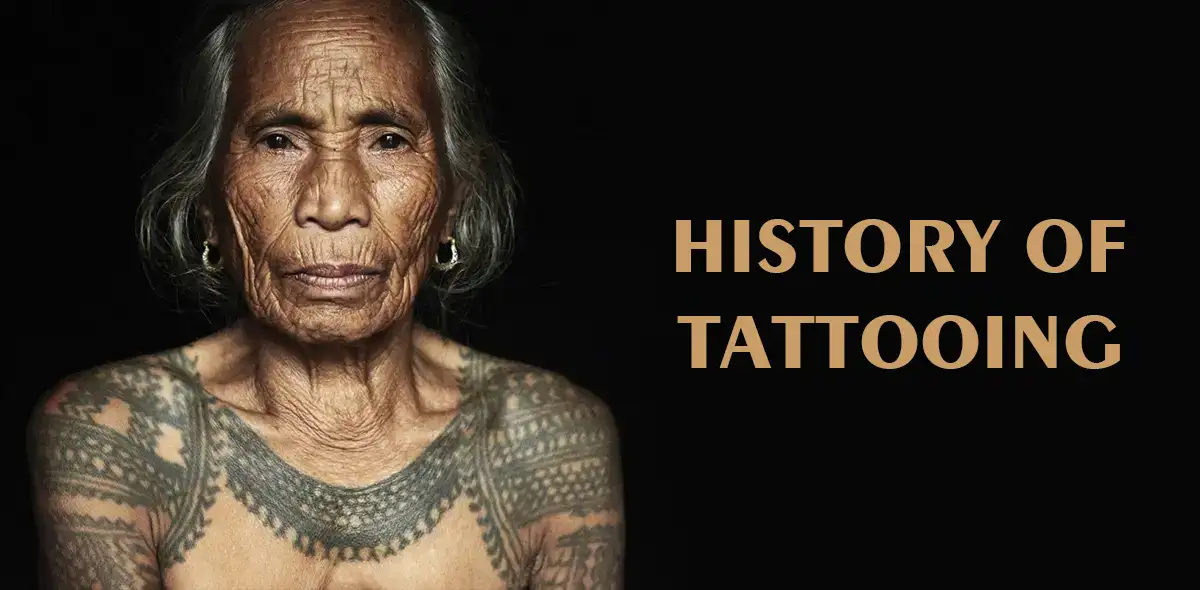History of Tattooing in Ibiza

The history of tattooing: a fascinating look at the origins of body art
The history of tattooing goes back a long way and is closely linked to different cultures and civilisations around the world. The origins of tattooing can be traced back to the earliest human societies, where it served as a ritual practice and expression of identity and belonging. If you want to get a tattoo in Ibiza, whether on the hand, arm, finger or other parts of the body, we will be happy to advise you. Visit us in our tattoo studio in Ibiza.
Early humans used natural dyes and tools such as animal bones to give themselves tattoos. These primitive forms of tattooing often had symbolic meaning and were used in rites and ceremonies to invoke spiritual powers or to mark membership in a particular tribal community.
Tattoos in the ancient world: art and social status
With the rise of early civilisations such as the Egyptians, Greeks and Romans, tattooing became more important and was increasingly seen as an expression of art and social status. In these ancient cultures, tattoos were worn by nobles, warriors and religious leaders and often served to emphasise their status and role in society.
The Egyptians, for example, used tattoos as a protective charm and as a sign of their religious worship. The Greeks and Romans, on the other hand, used tattoos to celebrate their military successes and to show their affiliation to certain groups or brotherhoods.
Tattoos in Asia: tradition and significance
In Asia, tattooing has a long tradition and is deeply rooted in the cultures of many countries. In China, tattoos were used as a sign of punishment to mark criminals. At the same time, in Japan, tattoos were considered a spiritual practice and associated with Shintoism and Buddhism.
In Southeast Asia, especially in Thailand, so-called Sak Yant tattoos are popular among monks and believers. These magical tattoos are said to bring protection and luck and are often considered a blessing for the wearer.
Tattooing in Western culture: from stigma to art form
Throughout history, tattoos in Western culture have long been associated with stigma and criminality. In the 19th and early 20th centuries, tattoos were often seen on convicts and sailors and were considered a sign of outsiders. However, this changed during the 20th century when tattoos gained popularity in popular culture and among artists and intellectuals. In the 1970s and 1980s, tattoos became a recognised art form and tattoo artists were celebrated as artists.
Modern tattoos: Variety, styles and meanings
Today, tattooing has become a broad and diverse art form encompassing a plethora of styles, techniques and meanings. From traditional motifs and cultural symbols to abstract artworks and realistic portraits, there are almost no limits to the creative expression of tattooing.
Tattoos also have a personal and emotional meaning for those who wear them. They can symbolise memories, life lessons, passions and experiences, and often serve as an expression of one’s identity and individuality.
The future of tattooing: evolution and innovation
The history of tattooing has shown that this fascinating art form is always changing and evolving. With modern technologies such as laser removal and 3D tattooing, new possibilities are opening up for tattoo artists and their clients. The acceptance and recognition of tattooing in society has increased greatly in recent decades, and tattoos are now an integral part of pop culture and fashion consciousness.
Overall, tattooing has evolved throughout history from a ritual practice to a diverse art form that fascinates and inspires people around the world. The story of tattooing will continue in the future as more and more people discover this unique and personal form of body art for themselves.

